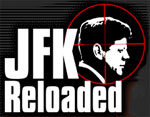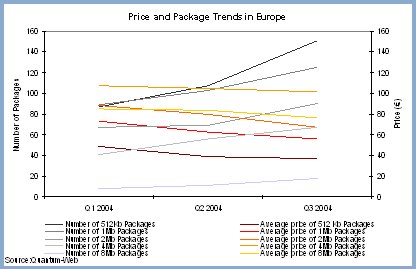There won’t be much surprise to hear that the now Murdoch-controlled DirecTV is readying the launch it’s own PVR around Spring 2005, whose function mirrors TiVo. Added to this, NDS the creators of the rivals PVR, claim their unit will handle Pay Per View programming better – by charging for the content when it is watched, not recorded. This will give them the opportunity to speculatively tempt the viewer with lots of yummy content.
The divorce of DirecTV and TiVo has been long, protracted and painful to watch. Much like friends watching from the outside as a marriage crumbles, where everyone appears to know that it’s over, except the unhappy couple.
TiVo has already had experience of the Murdoch approach to their business, when the two ‘worked together’ to bring TiVo to the UK. It is sufficient to say that TiVo stopped selling their product in the UK after only selling 30,000 units. It’s likely that most of these, probably would’ve been brought directly from the US anyway.
The big problem for TiVo is that DirecTV is their largest single customer and it will seriously impact their business. We imagine that they’ve been expecting it since DirecTV sold its 55% stake in one lump and its vice chairman, Eddy Hartenstein, resigned from their board back in June this year.
When this news is combined with, in our view, the near suicidal idea that TiVo plan to ‘upgrade’ the software on their subscriber’s boxes to display popup banner ads when fast forwarding through the TV adverts, you have to think that TiVo is in serious trouble.
Times have changed, and what was once special about TiVo has now become commonplace, and sadly, they don’t appear to be able to add anything to their offering as magical as the original.
We’re dismayed to read in the news report that the new DirecTV device will not have the ability to skip through the adverts. While we’re not surprised that an integrated company like News Corporation want to stop their subscribers for skipping through a revenue stream, we’re saddened that a feature that was so much a selling point for the original PVR, is going to be withheld. We wonder what the reaction of the subscribers that currently have the TiVo box that will be ‘upgraded’ to the new system will be? Even if the reaction is bad and vocal, it’s highly lightly that this will be a mere blip in the media landscape stretching forward.
 On the eve of the 41st anniversary of John F Kennedy’s murder, a dramatic new ‘docu-game’ brought the tragic assassination by Lee Harvey Oswald to life for a whole new generation. However, a spokesman for the president’s brother, Senator Edward Kennedy, called the game ‘despicable’, but has not commented on whether the family was taking any action to stop the game’s release.
On the eve of the 41st anniversary of John F Kennedy’s murder, a dramatic new ‘docu-game’ brought the tragic assassination by Lee Harvey Oswald to life for a whole new generation. However, a spokesman for the president’s brother, Senator Edward Kennedy, called the game ‘despicable’, but has not commented on whether the family was taking any action to stop the game’s release.
 The opening page (example right) has a video background running on the right and a small number of highlighted options on the left hand side. The layout and links on this page change throughout the day, to match the audience that they think will be looking at it. Currently changing twice it will feature items like horoscopes and lifestyles links during the day and betting and dating in the evening.
The opening page (example right) has a video background running on the right and a small number of highlighted options on the left hand side. The layout and links on this page change throughout the day, to match the audience that they think will be looking at it. Currently changing twice it will feature items like horoscopes and lifestyles links during the day and betting and dating in the evening. Another way to access the content is via a mosaic layout (example right). This shows a checkerboard of 16 video pieces running on loops. As the viewer uses their remote control to navigate between the videos, bring it in to focus, the audio channel associated with that video loop plays. This short-form video programming is designed to draw people in to the interactive content that lies behind and on pressing the Select key takes them to the content.
Another way to access the content is via a mosaic layout (example right). This shows a checkerboard of 16 video pieces running on loops. As the viewer uses their remote control to navigate between the videos, bring it in to focus, the audio channel associated with that video loop plays. This short-form video programming is designed to draw people in to the interactive content that lies behind and on pressing the Select key takes them to the content.